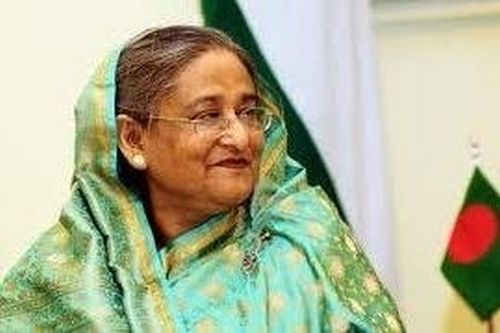United Nations, May 15 : The UN has sanctioned ISIS’ South Asia Branch, a terrorist group formed in 2015 by a Pakistani national and a former commander of the TTP, for its links with al-Qaeda and involvement in several deadly attacks in Afghanistan and Pakistan that killed over 150 people.
The United Nations Security Council’s 1267 Al Qaeda Sanctions Committee on Tuesday sanctioned Islamic State in Iraq and the Levant – Khorasan (ISIL-K), which is also known as ‘ISIS’ South Asia Branch, ISIL Khorasan, Islamic State’s Khorasan Province’ and ‘South Asian Chapter of ISIL’.
The listing comes two weeks after the Sanctions Committee designated Pakistan-based Jaish-e-Mohammed chief Masood Azhar as “global terrorist” on May 1, capping a decade-long effort by India and its allies including the US, the UK, France to sanction the mastermind of several attacks in India, including the 2001 Parliament attack and the February 14 Pulwama terror attack which killed 40 CRPF soldiers.
The group is now subject to assets freeze, travel ban and arms embargo.
The Sanctions Committee said in a statement that ISIS-K was formed on January 10, 2015 by a former Tehrik-e-Taliban Pakistan (TTP) commander and was established by former Taliban faction commanders “who swore an oath of allegiance” to ISIS and its leader Abu Bakr al-Baghdadi.
ISIS–K has claimed responsibility for numerous attacks in both Afghanistan and Pakistan.
The Sanctions Committee said the group was listed as being associated with ISIS or al-Qaida for “participating in the financing, planning, facilitating, preparing or perpetrating” acts or activities by supplying, selling or transferring arms and related materiel.
It said the group engaged in “other acts or activities indicating association with al-Qaeda, ISIS, or any cell, affiliate, splinter group of al-Qaeda in Iraq”.
The group had announced its formation in an online video in January 2015.
ISIS spokesman Abou Mohamed al Adnani had announced its expansion into the area historically known as Khorasan, by acknowledging ISIS–K leader’s pledge of allegiance to al-Baghdadi and claiming the leader of the Islamic State had accepted his pledge and appointed him as governor of the Khorasan Province.
The Sanctions Committee said ISIS-K had carried out numerous attacks since its formation that have killed more than 150 people.
In November 2016, the group carried out a suicide bombing at a Sufi shrine in Quetta, Pakistan that killed at least 50 people and injured over 100 people, it said.
In December 2017, the outfit claimed multiple suicide bombings at a Shia cultural center and news agency in Kabul, Afghanistan that killed more than 41 people, including women and children, and injured over 84 people, it added.
In July 2018, the group claimed responsibility for a suicide bombing outside a polling station in Quetta, Pakistan that killed at least 31 people and injured over 24 people.
According to leading Washington-based think tank for defense and national security Centre for Strategic and International Studies (CSIS), in 2014, Pakistani national Hafiz Saeed Khan was chosen to spearhead ISIL-K province as its first “emir”.
Khan, a senior TTP commander, “brought along other prominent TTP members — including the group’s spokesman Sheikh Maqbool and many district chiefs – when he initially pledged allegiance to al-Baghdadi in October 2014,” the CSIS, a nonprofit policy research organisation, noted on its website.
The website said the group’s “early membership included a contingent of Pakistani militants who emerged in Afghanistan’s Nangarhar province around 2010, just across the border from the former Federally Administered Tribal Areas (FATA) of Pakistan”.
It also said many of these militants were “estranged members” of TTP and Lashkar-e Islam, who had fled Pakistan to escape from the security forces.
According to Combatting Terrorism Center, academic institution at US Military Academy in New York, as of 2017, some members of Lashkar-e-Taiba, Jamaat-ud-Dawa, the Haqqani Network and the Islamic Movement of Uzbekistan (IMU) had also “defected” to ISIS-K.






